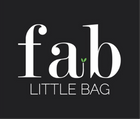
Periods: What Do Your Call Yours? A Historical Review By Charlotte Newell
For many, euphemisms for one’s menstrual cycle like “Aunt Flo has come to town” or “having the painters in” are relatively common expressions that even if they would not use themselves, they would still be able to easily understand their meaning. But why do we feel the need to use such phrases? Why can’t a period, the term itself something of a euphemism, simply be referred to as a period?
Why do we use euphemisms for menstrual cycles?
Scholars have traced the use of euphemisms for menstrual cycles back to some of the earliest Latin texts, including a 73 AD encyclopaedia in which periods are referred to supposedly toxic and corruptive effects of periods are discussed with no explicit reference to menstruation itself being made. Similarly, A. Gottlieb has noted how even the Old Testament of the Christian Bible refers to the supposed uncleanliness of a woman during the time in which she is menstruating. Thus, the shame and embarrassment that drives women today to hide their tampons up their sleeves as they sheepishly walk to the bathroom or to be filled with a wave of panic when they realise they may have bled through their jeans is by no means a modern phenomenon.
The long history of period taboo therefore can be seen as a primary force in shaping and influencing the use of period euphemisms. Precisely for the very same reasons for which women on their periods in some parts of India, for example, are expected to be separated from the outside world and are not even permitted to touch food that others will consume, period euphemisms are used to belittle, mock and avoid the subject of menstruation. These euphemisms subsequently push the topic of menstruation firmly into the realm of the inherently feminised private realm.
International Variations in Period Euphemisms
A recent study by the period tracking company, Clue, in which they surveyed 90,000 people across 190 countries found that there are over 5,000 euphemisms used internationally to describe, but not explicitly discuss, periods. These include “strawberry week” (Germany), “these days” or “critical days” (Russia), and even “estar del tomate” which is a Spanish idiom translating literally as “to be like a tomato” but actually meaning to “be crazy”.
When such phrases are broken down a few key themes can be identified. These are:
- Colour references.
- Temporal phrases.
- The experience of having a visitor.
- Being inhibited or “out of order”, as is said in France.
Despite these similarities, however, it is worth noting the cultural specificity of many period euphemisms. For example, the phrase “The English have landed” is used in several countries but is particularly popular in France. This is because the euphemism refers to the fact that the British historically wore red coats and thus this phrase relies on a shared cultural knowledge of the appearance of France’s historic enemy, the English, in order to invoke the red imagery associated with period blood.
Similarly, in her 1948 article The Vernacular of Menstruation¸ N.F. Joffe notes how the quantity and content of period euphemisms are shaped greatly by the nature of the broader culture of a given society. For example, in America, there is a greater focus on material items within period vernacular with phrases such as “riding the cotton bicycle” being quite popular amongst US citizens. Joffe suggests that this trend reflects the prevalence and social centrality of material culture within America and thus reflects how period euphemisms are greatly culturally specific and varied. Shockingly, even though Joffe’s article is 75 years old, it still holds incredibly true and pertinent in modern discussions of period euphemisms and thus shows the stagnated nature of period discourses and the need for change.
So, how should we refer to menstruation?
Because of the long-standing conflation of periods, shame, and, subsequently, secrecy, there have been increasing calls for people to simply call periods by their name. And so while euphemisms are not totally devoid of utility – they can be funny, discrete and even a sort of verbal display of one’s cultural knowledge – the intentionality behind their use needs to be interrogated and challenged.
Women should feel comfortable and empowered to discuss their period without dancing around the subject and having to employ a series of vague phrases and idioms to describe what is a natural process that affects half of the world’s population that should not be tainted by shame or embarrassment. Tampons, sanitary pads, menstrual cups, are all words that needs to be said out loud more often! At FabLittleBag we like to keep things simple, FabLittleBags are just that, are exactly as described; simply the best and easiest disposal method.PERIOD
